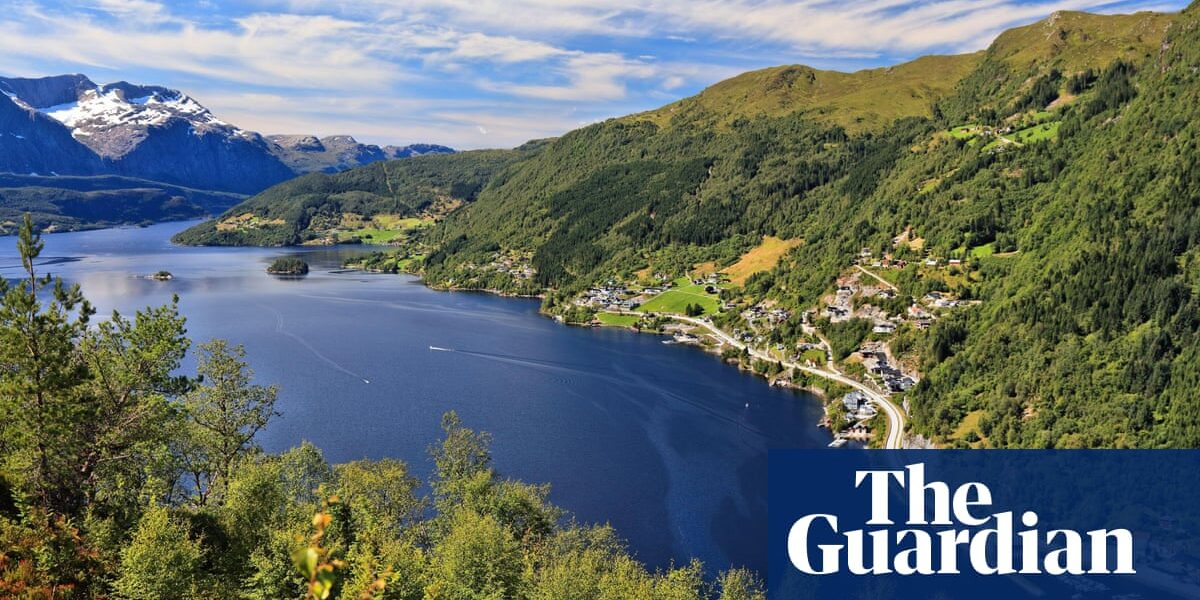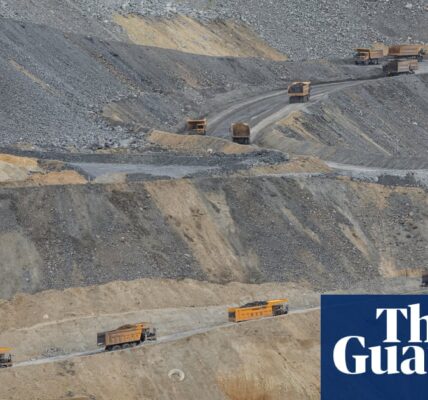
After a legal battle, Norway has been granted permission to dispose of mining waste in its fjords, despite opposition from environmental groups.
Following a 15-year-long disagreement, Nordic Mining, a private company, has been granted permission to deposit 170 million tonnes of mining waste at the base of the Førde fjord. This decision has been met with criticism as it is believed to pose a threat to marine life and jeopardize biodiversity.
Only two other countries, Papua New Guinea and Turkey, still issue new licenses for marine waste disposal, and Norway has now joined them.
The judge ruled that Friends of the Earth Norway and Nature and Youth, the two environmental groups that filed the lawsuit, must cover legal expenses totaling approximately £110,000. While they have the option to appeal the decision, they stated that their funds are currently limited and they are seeking outside assistance to continue the battle.
According to Truls Gulowsen, the leader of Friends of the Earth Norway, this goes against the Aarhus convention’s principle that individuals should not face financial barriers in seeking justice for environmental issues. Due to financial constraints, they are currently unable to pursue the case.
He stated that the decision could potentially dissuade future legal actions seeking to safeguard the environment from corporate influences.
The government has been accused by critics of disregarding the advice given by its own advisors, the Norwegian Institute of Marine Research.
According to Geir Huse, a senior researcher at the institute, our responsibility is to conduct research and provide recommendations to the government regarding potential outcomes. However, it is ultimately the politicians and administration who have the authority to make decisions.
After further evaluation, we have determined that we do not recommend marine waste disposal due to the potential harm it could cause to the ecological balance of the Førde fjord.
According to Huse, the fjord serves as a crucial spawning location for cod and a pathway for salmon from four rivers. He also mentioned the potential danger of fine particles spreading across a larger area of the ocean.
He stated that there is a high likelihood that they will expand beyond the fjord, leading to uncertain outcomes.
Nordic Mining plans to retrieve garnet and rutile from their mineral deposits. These minerals have various applications such as being used as an abrasive and in products like paint, cosmetics, and medical implants.
after newsletter promotion
The company has been authorized to discard 4 million tonnes of waste annually, however, Nordic Mining’s CEO Ivar S Fossum stated that the company intends to dispose of only 1.2 million tonnes per year. The disposal area spans 4 square kilometers, encompassing 4% of the fjord’s bottom.
Reworded: Gulowsen expressed concern over the lack of consideration for environmental rights within the judicial system. The plaintiffs argued that the ruling violated the EU’s water framework directive and was based on a misinterpretation of the directive.
Gulowsen expressed shame over Norway’s continued use of marine waste disposal. He suggests that this practice reflects an outdated view of the ocean, where it is seen as a place to discard waste and forget about it. This goes against what one would expect from a country with a strong history of seafaring.
Last week, Norway received backlash for approving commercial deep sea mining on its seabed through a parliamentary vote, despite concerns about its potential harm to marine ecosystems.
A representative from the Norwegian government stated: “It is widely accepted that mining tailings have negative effects on the environment, regardless of whether they are disposed of on land or in water. In this particular case, all parties involved agreed that disposing of the tailings in the ocean was not a better environmental choice than disposing of them on land. At present, there are no other options for storing such large amounts of mine tailings.”
Source: theguardian.com


